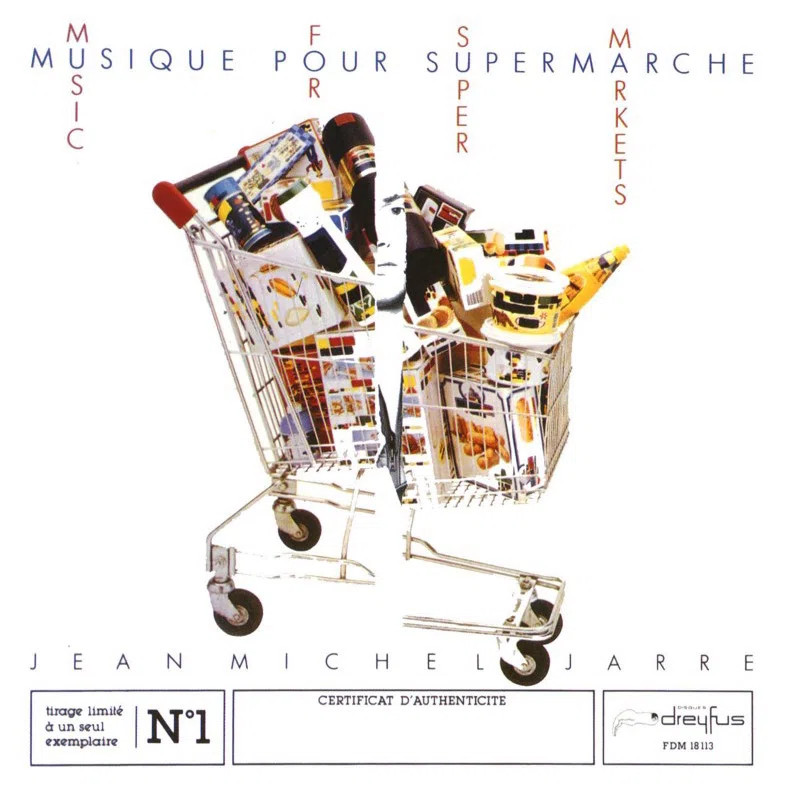Jean Michel Jarre — Music for supermarkets. Story behind one-copy album

“In a time when everything is standardized, overbroadcast, a time when we are endlessly overinformed, saturated with sounds and images, it seemed to me worthwhile to demonstrate that a record is not only a piece of merchandise without value, infinitely multipliable, but it can be, like a painter’s picture or a sculptor’s bronze, an integral part of a musician’s creation. Francis Dreyfus, President of my recording company, has accepted the challenge of introducing a single album outside the usual channels, and in this way he shows that a business can be creative, can recognise the artist’s identity and even be humouristic about it.
Hurray for supermarkets! Our environment is a supermarket: crossbreeding of merchandise, blending of consumer and cashier, everything is for sale, everything is commonplace, everything fades, everything is altering—our food, our language, our roots. The supermarkets may well be the galleries and the museums of tomorrow. The music for everybody can also be be the music for each of us individually.” Jarre, 1983.
Here it isn’t the music itself that sounds interesting, sometimes it’s too poppy


